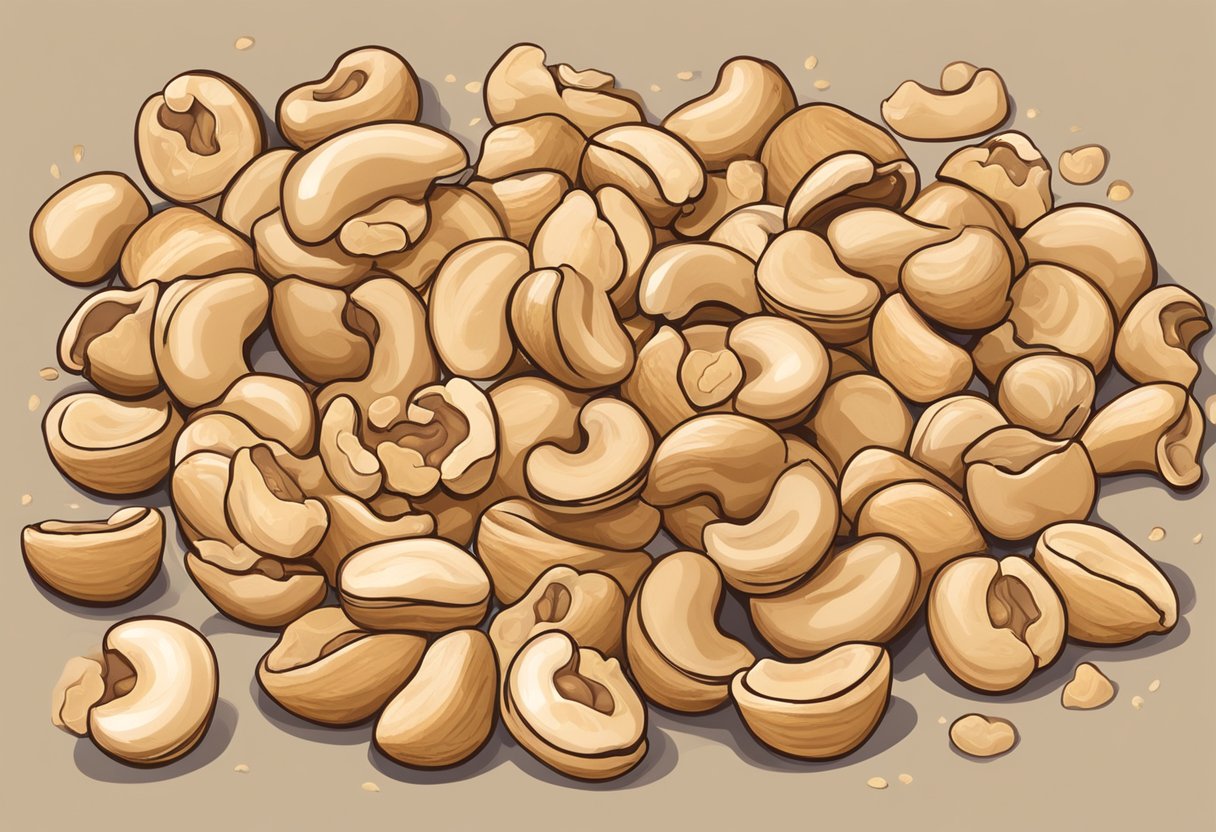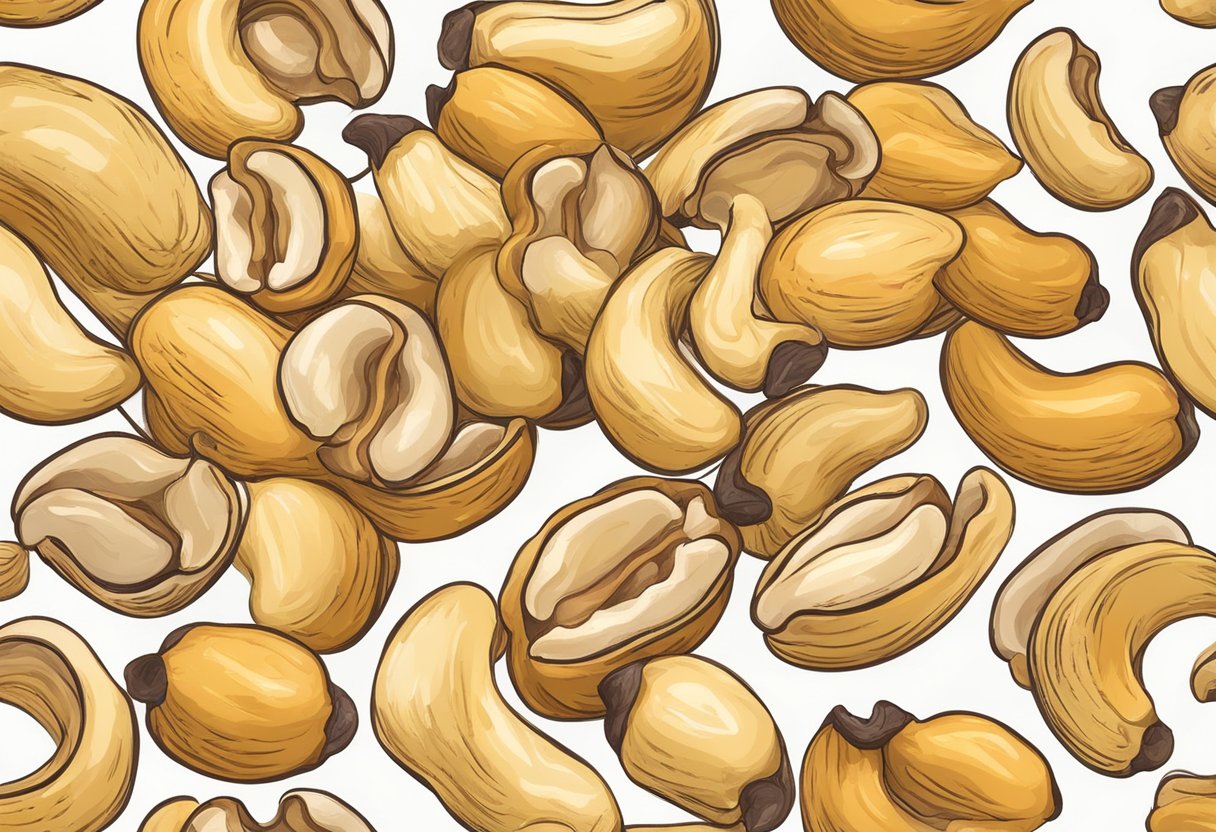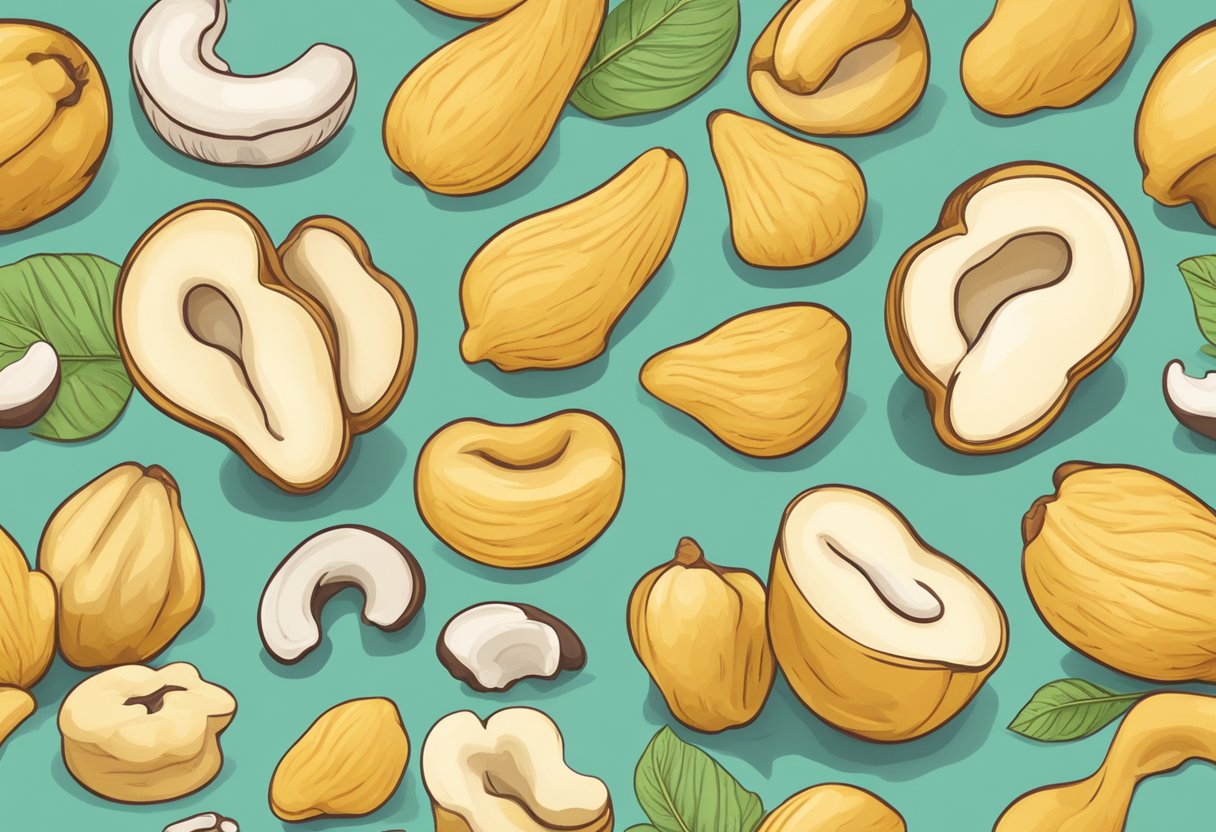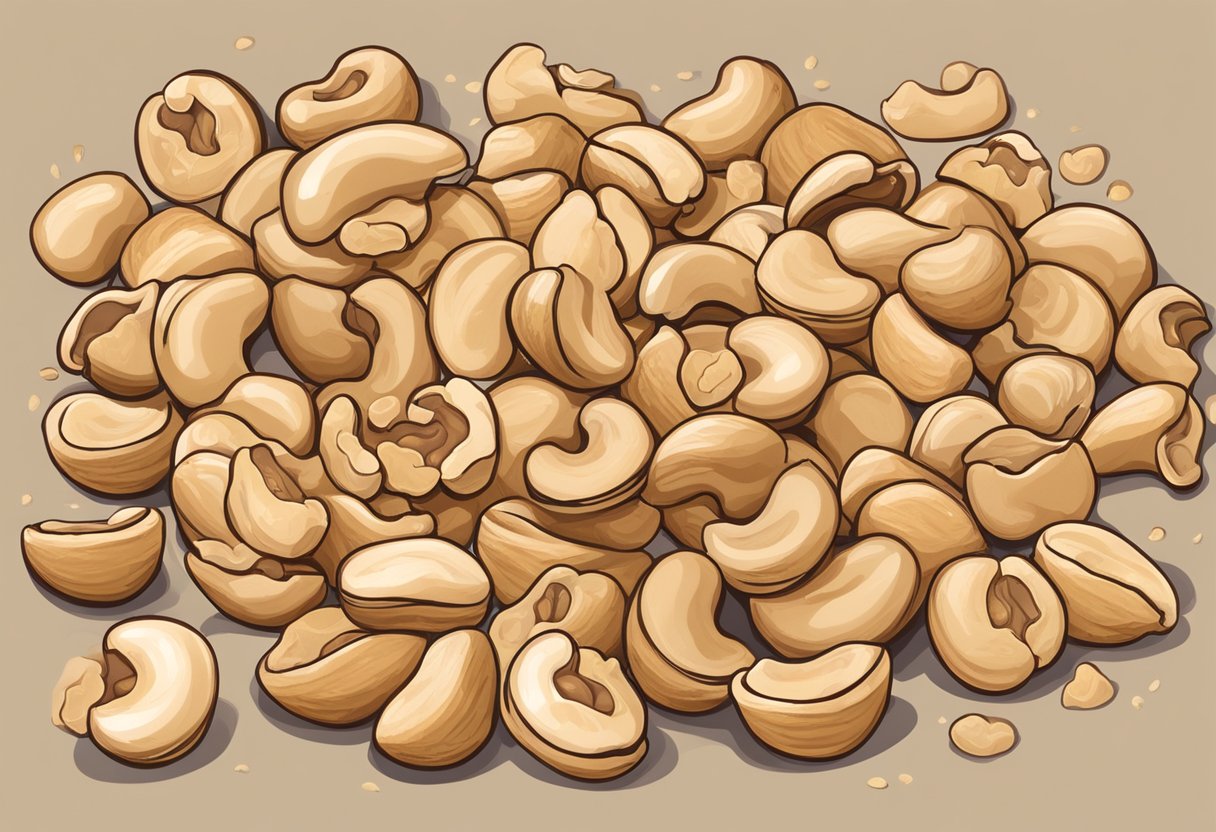Are Cashews Keto Friendly? A Clear Guide to Nuts on a Keto Diet

Cashews are a popular tree nut and a healthy snack option for many. But when it comes to the ketogenic diet, a low-carb, high-fat eating plan, the question arises: are cashews keto-friendly? While cashews offer numerous health benefits, it’s important to consider their nutritional content in the context of a keto diet, since this eating plan focuses on minimizing carbohydrate intake.

Unfortunately, cashews are not the best fit for the keto diet due to their higher carbohydrate content compared to other nuts. On a ketogenic diet, people usually aim to consume around 20 to 50 grams of carbs per day. In comparison to other nuts, such as almonds and pecans, cashews contain a significantly higher amount of carbs, making it challenging to incorporate them into a keto meal plan without exceeding daily carb limits.
Although cashews may not be the most keto-friendly option, there are several other nuts like macadamia, Brazil, and walnuts that can easily fit into the low-carb, high-fat ketogenic diet guidelines. It’s essential for individuals following the keto diet to carefully select their food choices and make adjustments accordingly to achieve optimal results.
Understanding Cashews
https://www.youtube.com/watch?v=2lvpSJkk3_4&embed=true
Cashews are a popular type of tree nut that are often consumed as a healthy snack. However, it is essential to understand their nutritional content, especially when considering them for specific diets like the keto diet.
Rich in various vitamins, minerals, and antioxidants, cashews offer numerous health benefits. One of the essential nutrients present in cashews is vitamin K, which plays a crucial role in blood clotting and maintaining bone health. Additionally, these nuts are an excellent source of copper, a mineral vital for energy production, iron metabolism, and maintaining nerve cell function.
Manganese is another vital mineral found in cashews, contributing to bone health and metabolism regulation, while magnesium supports muscle and nerve function and aids in blood pressure regulation. Cashews also contain a range of B vitamins that help with energy production and immune system support.
As a source of antioxidants, cashews help combat oxidative stress and support overall health. Antioxidants found in these nuts include polyphenols and carotenoids, which help protect against cellular damage and reduce inflammation.
However, when considering the keto diet, it is crucial to keep in mind the carbohydrate content of cashews. A typical 1-ounce serving of raw cashews has 7.6 grams of net carbs, which can add up quickly if consumed in large amounts (source).
In summary, cashews are a nutrient-dense snack option, rich in vitamins, minerals, and antioxidants. However, due to their relatively high carbohydrate content, it is essential to monitor their consumption, especially on a keto diet.
Carbs in Cashews
https://www.youtube.com/watch?v=pe8qme5GY98&embed=true
Cashews are a popular nut known for their creamy taste and versatile use in both sweet and savory dishes. However, when it comes to following a keto diet, it is essential to consider the carb content in these nuts.
In one ounce of cashews, there is a total of 9 grams of carbohydrates. The majority of this carbohydrate content comes from starches and sugars, while a smaller portion comes from fiber. Consuming fiber is essential for overall health, but for those on a keto diet, the focus is on net carbs. To calculate net carbs, simply subtract the fiber content from the total carbs. With 1 gram of fiber in an ounce of cashews, this brings the net carb count to 8 grams.
When compared to other nuts, cashews have a relatively high net carb count, making them less keto-friendly in larger quantities. For individuals following a strict keto diet, allocating more than 20 grams of net carbs per day, cashews can quickly consume a significant chunk of their daily carb allowance.
In summary, cashews contain 9 grams of total carbs and 1 gram of fiber per ounce, resulting in 8 grams of net carbs. This high carb count makes them less suitable for the keto diet when consumed in larger quantities. Those following a strict keto diet should practice portion control and consider alternative low carb nuts, such as almonds or macadamia nuts, to maintain their daily carb limits.
Cashews & Keto Diet Compatibility

Comparing Different Nuts
When following a keto diet, it’s essential to choose nuts that are low in carbohydrates to stay within the daily carb limit. Cashews, unfortunately, are relatively high in carbs compared to other nuts. Per 100g of cashew nuts, there are 26.5 grams of net carbs. However, when considering the average serving size of a portion of cashew nuts, approximately 45 grams or 1/4 cup, the carb count does lower, but it is still not the most keto-friendly option.
To better understand the compatibility of cashews within the ketogenic diet, it’s helpful to compare their carbohydrate count to other nuts:
- Almonds: 5 grams of net carbs per 1/4 cup
- Pecans: 1.2 grams of net carbs per 1/4 cup
- Macadamia nuts: 1.5 grams of net carbs per 1/4 cup
- Walnuts: 2 grams of net carbs per 1/4 cup
- Peanuts: 5 grams of net carbs per 1/4 cup
- Pine nuts: 3.2 grams of net carbs per 1/4 cup
- Brazil nuts: 1.5 grams of net carbs per 1/4 cup
- Hazelnuts: 2 grams of net carbs per 1/4 cup
By comparing these nuts’ carbohydrate counts, it’s clear that cashews are significantly higher in carbs than nuts such as pecans, macadamia nuts, brazil nuts, and hazelnuts, making them less suitable for the keto diet.
Keto Cashew Substitutes
For those following a keto diet, it’s essential to look for lower carb alternatives to cashews. Some of the best keto-friendly options include:
- Walnuts: Not only do walnuts have a lower net carb count at 2 grams per ounce, but they also help boost brain function due to their high polyunsaturated fat content.
- Pecans: With only 1.2 grams of net carbs per 1/4 cup, pecans make an excellent keto-friendly substitute for cashews.
- Macadamia nuts: Known for their rich and creamy texture, macadamia nuts have a minimal carb count of 1.5 grams per 1/4 cup, making them a suitable alternative for those on a keto diet.
- Brazil nuts: With the same low carb count as macadamia nuts, brazil nuts are another great option for those looking to replace cashews in their ketogenic lifestyle.
When choosing keto-friendly substitutes for cashews, focus on nuts with lower carbohydrate counts such as walnuts, pecans, macadamia nuts, and brazil nuts. These alternatives provide healthy fats and nutrients without jeopardizing the carbohydrate balance necessary for the keto diet.
Health Benefits of Cashews

Cashews are not only delicious but also packed with essential nutrients that promote overall health. They are a good source of protein, providing approximately 4 grams per ounce, contributing to healthy muscle growth and repair.
One of the main benefits of cashews is their role in heart health. These nuts are comprised of over 60% monounsaturated fat, specifically oleic acid, which is also found in olive oil and avocados. Monounsaturated fats can help reduce bad cholesterol levels, thus minimizing the risk of heart disease and stroke.
Furthermore, cashews are rich in essential minerals, such as iron, zinc, and selenium. Iron is vital for oxygen transport in the body and can help prevent anemia. On the other hand, zinc is crucial for immune system function, while selenium acts as an antioxidant, protecting cells from damage.
Another great advantage of consuming cashews is their anti-inflammatory properties. They contain a variety of antioxidants, like vitamin E, which can help fight inflammation and potentially lower the risk of chronic diseases such as cancer.
In terms of blood pressure management, cashews also play a role by providing a source of magnesium. This mineral is known to help regulate blood pressure levels and maintain overall cardiovascular health.
Moreover, cashews are abundant in B vitamins, especially folate, which is essential in the production of red blood cells and proper brain function. The adequate intake of folate is particularly crucial during pregnancy for preventing birth defects in infants.
However, it is essential to consume cashews in moderation due to their relatively high carb content, which may not be suitable for people following a keto diet. Nevertheless, when consumed mindfully, cashews can contribute to a balanced and healthy diet, providing numerous benefits for the body.
Cashews & Cholesterol
Cashews are known for their rich flavor and versatile culinary uses. As a popular tree nut, cashews contain a variety of nutrients that can contribute to maintaining good health. One important aspect to consider when discussing cashews’ effect on health is their impact on cholesterol levels.
According to the USDA, cashews are a good source of monounsaturated and polyunsaturated fats, which are considered healthier fats. These types of fats can help in reducing the levels of low-density lipoprotein (LDL) cholesterol in the body. LDL cholesterol is often referred to as “bad” cholesterol because high levels of LDL can lead to the buildup of plaque in the arteries, increasing the risk of heart disease.
When consumed in moderation, the healthy fats found in cashews can contribute to improved heart health. In fact, several studies have shown that the consumption of nuts, including cashews, is associated with a lower risk of cardiovascular diseases. A 2017 study published in the Journal of the American Heart Association found that consuming nuts such as cashews was linked to a reduced risk of coronary heart disease and total cardiovascular disease.
However, it is essential to keep in mind that moderation is key. Cashews are also relatively high in calories and can contribute to weight gain when consumed in large quantities. Excess weight gain can negate the cholesterol-lowering effects of cashews and may increase the risk of heart disease.
In conclusion, cashews can be part of a heart-healthy diet when consumed in moderation. Their monounsaturated and polyunsaturated fat content can aid in lowering LDL cholesterol levels and reducing the risk of heart disease. However, it is crucial to maintain a balanced diet and consume cashews in appropriate amounts to achieve the maximum health benefits.








Leave a Reply